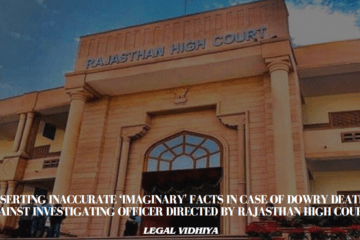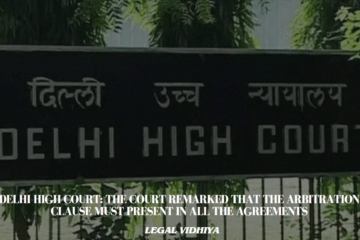
The Supreme Court has dismissed the legal actions taken against a woman and her father, which were initiated based on an FIR filed by her husband following a marital dispute. The accusations involved allegedly forging the husband’s signature to obtain her minor son’s passport.
A bench comprising Justices Surya Kant and Dipankar Datta granted the plea filed by Mariam Fasihuddin and her father, challenging the Karnataka High Court’s decision, and imposed a fine of Rs one lakh on the husband. The court noted that both the Trial Magistrate and the High Court overlooked the fact that the root cause of the current dispute stems from a marital issue.
The bench also expressed that not every deceptive act is necessarily illegal, just as not every unlawful act involves deceit. They highlighted that certain actions may be categorized as both unlawful and deceitful, and only such actions would come under the scope of Section 420 of the Indian Penal Code (IPC).
The bench further stated that, “This court, therefore, will exercise caution before invoking such severe offences and penalties solely on the basis of conjectures and surmises.”
Background
The parties entered into matrimony in 2007. Despite initial resistance, the husband eventually agreed to accompany his wife to London. However, shortly after their arrival, he confined her to her sister-in-law’s residence. Despite the challenging situation, the wife managed to return to India. In 2009, during a visit, the husband threatened the wife and took possession of the minor child’s passport for travel arrangements.
The court, after considering these details, raised questions about the timing of the husband’s complaint. Notably, the passport had been issued in 2009, prompting the court to inquire whether it was a mere coincidence that the husband chose to file
his complaint only after an FIR had been lodged against him. While the law mandates the husband to provide sufficient maintenance to his wife and minor child, the court observed that the complaint, lodged by the husband on May 13, 2010, which accused forgery and fabrication, conspicuously omitted any information about the measures taken for the welfare of his minor child, as stated by the bench.
The court cited Section 12(b) of the Passports Act, 1967, asserting that the recognition of offenses of a similar nature can only be initiated by the Prescribed Authority. The court highlighted that no complaint of such nature has been revealed against the appellants.
Additionally, the bench also stated that, “The appellants were unnecessarily implicated and dragged into criminal proceedings, thereby causing undue hardship to them.”
While giving the Judgement, the bench stated that, “A paid report obtained from a private laboratory seems to be a frail, unreliable, unsafe, untrustworthy and imprudent form of evidence, unless supported by some other corroborative proof. It is pain ful to mention that the husband has not produced any other substantive proof, nor has the investigating agency obtained any such material for further investigation. The basis on which the Trial Magistrate formed a prima facie opinion is beyond our comprehension”
The court also observed that the current matter has negatively affected the rights and interests of the minor child.
Case Title- Mariam Fasihuddin & Anr. v/s State by Adugodi Police Station & Anr.
Anshra Zafar, a B.A.LLB (Hons) student at IILM University, Greater Noida, 4th Semester. An intern under Legal Vidhiya.
Disclaimer: The materials provided herein are intended solely for informational purposes. Accessing or using the site or the materials does not establish an attorney-client relationship. The information presented on this site is not to be construed as legal or professional advice, and it should not be relied upon for such purposes or used as a substitute for advice from a licensed attorney in your state. Additionally, the viewpoint presented by the author is of a personal nature.




0 Comments